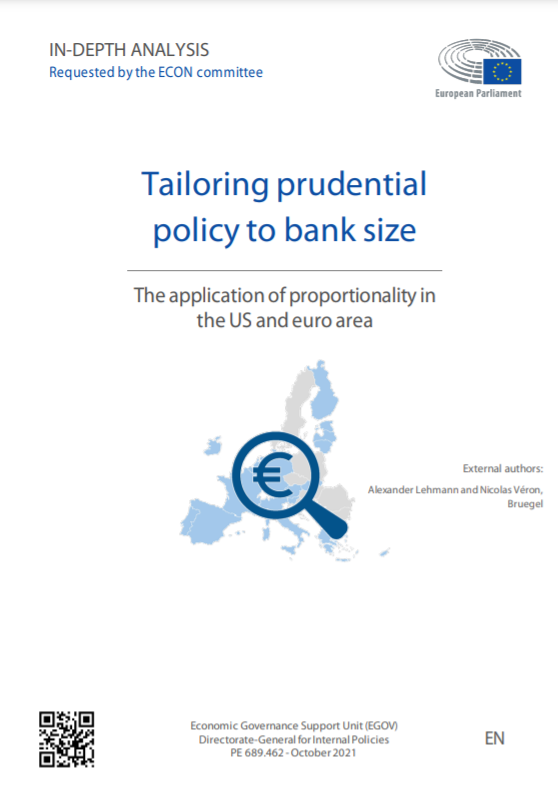Blog Post
The EU must stand ready to confront US leadership
This is not the first time that the United States has antagonised Europe. And Europe can provide an effective response to such external challenges when it stands united.
The new US administration’s recent policy measures and criticisms against Europe have so far provoked little reaction from EU leaders. US president Donald Trump was in The Times and Bild on 16 January, and wheeled out a number of clichés against Europe. French and German leaders reacted by merely re-affirming Europe’s readiness to protect its own values and interests.
German chancellor Angela Merkel said that ‘we Europeans have our fate in our own hands.’ French president François Hollande said that ‘Europe will be ready to pursue transatlantic cooperation, but it will be based on its interests and values (…). It does not need outside advice to tell it what to do.’ But so far EU leaders’ reactions have remained at the level of general declarations. Indeed, there still seems to be a widespread perception that the EU is too weak an organisation to stand firm vis-à-vis the United States’ policy choices.
Part of this perception comes from the fact that the United States famously encouraged and protected early efforts to unite Europe. The Marshall Plan and the subsequent creation of the Organisation for European Economic Cooperation (OEEC) are often taken as the start of post 1945 European integration. They are prime examples of positive US involvement in Europe. By providing economic aid and supporting Europeans to organise themselves, the United States played an important role in the origins of European integration. In addition to this economic support, the United States also provided a military umbrella over Western Europe after World War II. Therefore, economically and militarily, the European Union developed in a transatlantic cocoon.
Should we be surprised, then, by the recent negativity on the part of our transatlantic ally? This is certainly not the first time that US foreign policies have been directed against European interests. It is important to realise that on several past occasions, the EU did prove able to react forcefully, protect its interests, and modify the course of US foreign policy in Europe.
In foreign policy, the overcoming of the cold war order in Europe is an excellent example of the success of European diplomacy in the face of the alleged hegemony of the US, and indeed also the Soviet Union. For instance, in the late 1960s/early 1970s, US strategy mostly consisted in perpetuating the bipolar order, and thereby the division of the European continent. By contrast, Western European governments and the then European Economic Community (EEC), the EU’s predecessor, aimed to slowly transform European relations in order to overcome the cold war partition of Europe between East and West.
The policy of the EEC and Western European governments contributed to showcase a European voice, distinctive from its transatlantic ally. The Helsinki Final Act – which the EEC signed – crowned these diplomatic efforts. The most recent historical literature points to the fact that EEC member states acted together within the EEC framework to promote the process of European détente. The EEC/EU showed that it did not need the advice of the United States to decide on its fate.
In trade, a united EU reaction to US policy has also proved very efficient. In the early 1980s, the Soviet Union started building a natural gas pipeline to supply Western Europe. In order to do this, the Soviet Union needed financing, equipment, and technology from the West. Many Western European countries welcomed the construction of this pipeline, as it would contribute to diversify their imports of natural gas. The US administration, by contrast, severely criticised the initiative.
The United States targeted four EEC member states in particular – France, Italy, West Germany, and the United Kingdom – for having concluded contracts related to the construction of the new transcontinental gas pipeline. Through this trade, the US administration argued, European countries were effectively supporting the Soviet Union. In 1982, US president Ronald Reagan decided to impose an embargo on all equipment manufactured by Western firms – including British, French, Italian, and West German – under license from US companies involved in such a trade with the Soviet Union.
These EEC members reacted with outcry. But instead of reacting separately, these four countries coordinated their response through the EEC and its then embryonic foreign policy, called European Political Cooperation (that was also the mechanism involved in Helsinki). Faced with this strong opposition, Reagan backed down, and lifted the embargo. A coordinated EEC response proved again that it could make a difference.
In the monetary realm, the EU has also been capable of prompt and effective reactions. The whole story of European monetary integration showcases the affirmation of Europe on an international stage dominated by the dollar and its harmful fluctuations for European economies. In monetary affairs, US actions have been more often than not directed against Europe’s own efforts. For instance, when US president Richard Nixon decided on 15 August 1971 to put a brutal and unilateral end to the gold-dollar link and introduce an import tax, the US administration clearly aimed to disrupt European efforts at monetary unification. And it momentarily succeeded in doing so.
In the late 1970s, the US administration pursued an economic policy that led to the collapse of the dollar on international currency markets. This endangered European economies, in particular West Germany. The then West German chancellor Helmut Schmidt, upset by what he perceived as a US ‘malign neglect,’ called for a proper European reaction. This reaction took the form of the European Monetary System (EMS), created in 1978. In presenting the EMS to the Bundesbank, Schmidt explained that Europeans could not remain passive in front of US unilateral actions that had consequences on the world economy. Schmidt declared that ‘it was urgently necessary that the Europeans say to the Americans: that’s not going to carry on.’
Such past examples should remind European policymakers of the EU27’s potential strength on the international stage vis à vis the US. The EU27 can do little to change the predetermined policy inclinations of the new US administration. But what the EU27 can do is to gain full confidence in its capacity to influence the course of international events by being coherent, consistent, and united. There is no reason for the EU to shy away from its duty to protect its citizens’ interests and uphold their values internationally. The EU27 must be ready to say to its transatlantic ally, whenever the US administration puts at risk European interests and values: this is not going to carry on.
Republishing and referencing
Bruegel considers itself a public good and takes no institutional standpoint. Anyone is free to republish and/or quote this post without prior consent. Please provide a full reference, clearly stating Bruegel and the relevant author as the source, and include a prominent hyperlink to the original post.









